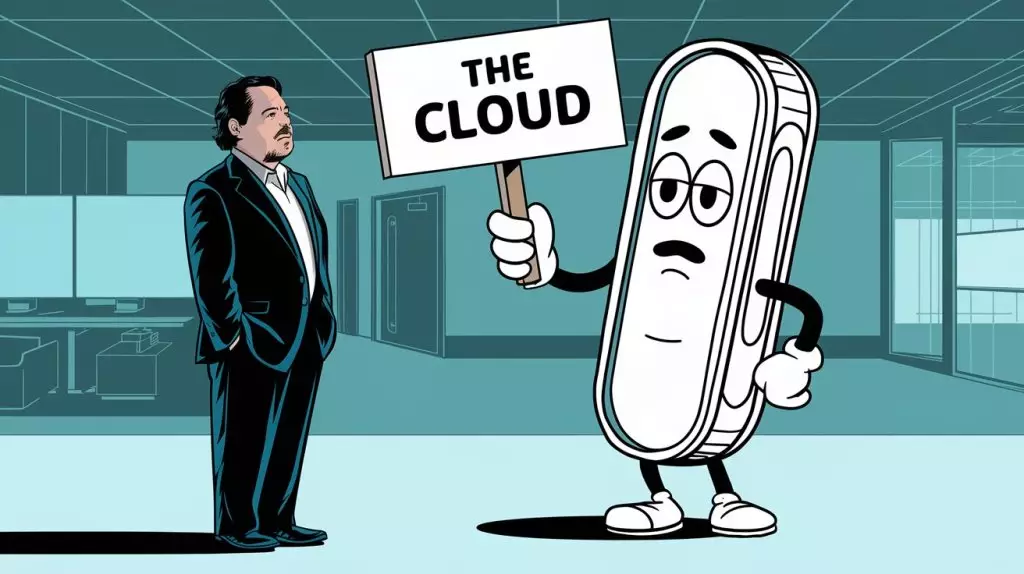Marc Benioff, the co-founder and CEO of Salesforce, recently ignited discussions in the tech community with sharp criticisms aimed at Microsoft’s AI assistant, Copilot. In a post on his X account, he described it as “disappointing” and claimed that “it just doesn’t work” while further diminishing its credibility by dubbing it “Clippy 2.0,” referring to the infamous Office Assistant from the 1990s. This characterization evokes a potent nostalgia that serves as a reminder of Clippy’s well-documented shortcomings as an AI helper, which left users feeling more frustrated than supported. The comparison brings to light a persistent critique of AI technology: has innovation truly led to better user experiences, or has it merely repackaged old problems?
Despite its initial promise, Microsoft’s Copilot—built upon OpenAI’s GPT models—has faced notable skepticism. Launched in March 2023, it was designed to enhance productivity within Office 365 by providing intelligent assistance across various digital platforms. Nevertheless, as users increasingly seek AI tools that genuinely augment their workflows, any perceived deficiencies in Copilot could hinder its adoption and trustworthiness.
It’s important to recognize that Benioff’s comments come from a position of potential bias, given Salesforce’s direct competition with Microsoft. Salesforce’s CRM software competes with Microsoft Dynamics 365, and its Slack platform takes on Microsoft Teams. This rivalry is not just about products but extends to an arms race in the evolving landscape of AI tools. Companies like Salesforce aim to showcase their technological superiority, particularly as both giants have invested in AI advancements since the deployment of ChatGPT in late 2022.
Benioff’s critique can be interpreted as an astute strategic move, attempting to position Salesforce’s offerings as more effective or user-friendly than those of Microsoft. However, his statements also raise the question of whether his comments reflect genuine concern or are simply a competitive tactic to sway public opinion about AI efficacy in business contexts.
Interestingly, Benioff’s criticisms of AI stretch beyond Copilot’s limitations. He has openly expressed doubts about the overall capabilities of AI, suggesting that much of its purported potential is overstated. In a recent post, he argued that AI had not yet made significant strides in critical areas like healthcare or environmental issues. These claims have sparked scrutiny, as critics point out the absence of empirical evidence to support his assertions.
This dichotomy—of being both a promoter of AI possibilities while labeling others’ implementations as failures—highlights a complex narrative that many industry leaders grapple with. It amplifies an ongoing debate about the current capabilities of AI: just how far has the technology come, and where does it fall short? Benioff may be attempting to carve out a balanced perspective, advocating for the viable gains businesses can achieve through AI while simultaneously calling out its limitations.
The Public’s Evolving Reception
Benioff’s comments come at a time when public sentiment surrounding AI technology is shifting. Initially, the arrival of transformative AI solutions like ChatGPT sparked exuberance, with many believing that these tools would revolutionize industries. However, as the novelty fades, scrutiny arises. Observers and industry experts, such as public relations authority Ed Zitron, are now questioning the sustained faith in the AI revolution, citing Benioff’s remarks as symptoms of a more critical public perspective.
The growing distrust in AI’s transformative promises, particularly when a prominent figure like Benioff raises concerns, points to a need for a more grounded conversation regarding the capabilities and limitations of AI. As companies like Salesforce continue to innovate, the key challenge lies in meeting real user needs effectively while avoiding the pitfalls of over-promising.
Benioff’s criticisms highlight not just a rivalry born from competition but the broader conversation about the future of AI in business and technology. As both excitement and skepticism coalesce, it becomes increasingly necessary to foster honest dialogue around the potential and shortcomings of AI. The industry stands at a crossroads where genuine solutions must rise above mere marketing. Stakeholders must heed the lessons learned from past technologies like Clippy if they are to avoid repeating those mistakes in the AI era. Ultimately, the evolution of AI will depend on the sincerity with which its advocates approach the technology’s rollout and refinement.

